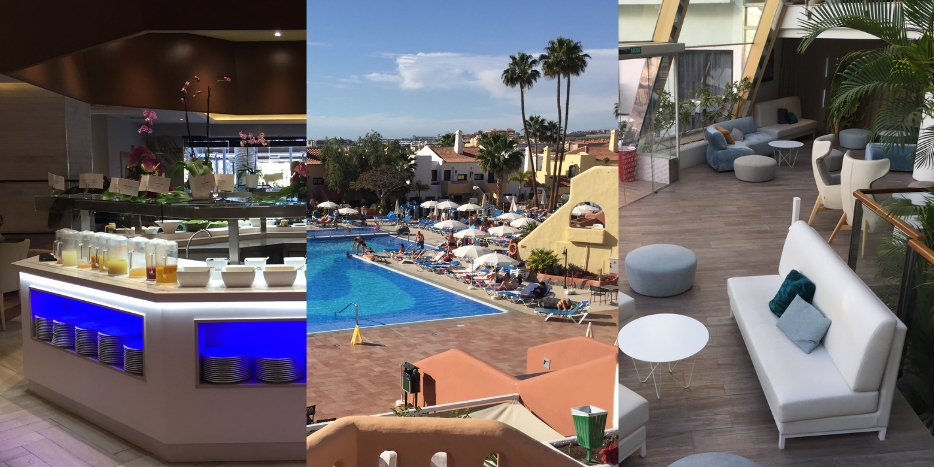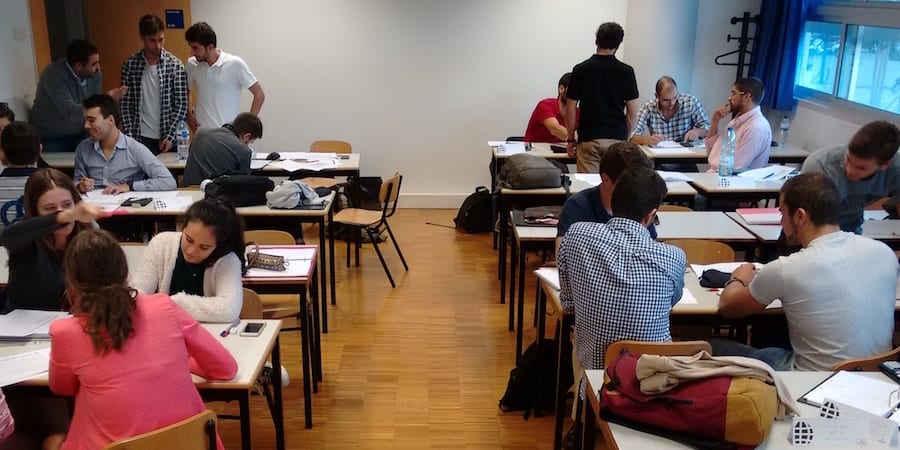
How lean knowledge travels across a hotel chain
INTERVIEW – Three hotel directors from the same chain in the Canary Islands give us the lowdown on the company’s strategy to facilitate the transfer of lean knowledge from one location to another.
Words: Cristina Aguiar Rivero, Director of Gran Tacande in Tenerife, Noa Lírez Forneiro, Director of Villa Tagoro in Tenerife, and Amalia Vidal Vázquez, Director of Gran Tagoro in Lanzarote – Canary Islands, Spain.
Roberto Priolo: Our audience is becoming more and more familiar with the Dreamplace lean transformation. In this interview, I would like to explore the topic of knowledge transfer, which I know you put a lot of emphasis on. Can you give us an overview?
Cristina Aguiar Rivero: The hotel where lean first appeared was Tigotan. They were alone running experiments for a few months, until we at Gran Tacande also decided to start. From the very beginning, Tigotan staff supported us, sharing their experience during the regular meeting that took place every couple of months. I visited Amalia in Tigotan every time I could, trying to learn as much from her as possible.
Noa Lírez Forneiro: When we began with lean at Villa Tagoro, both Amalia and Cristina came over to support our people. We also asked department heads to travel to the other hotels to see how their counterparts were working and interacting with their own staff. When I became hotel director at Villa Tagoro (a job previously held by Amalia), I focused on importing the daily management work I had seen at Tigotan and Gran Tacande.
Amalia Vidal Vázquez: As I took my first steps down the lean route at Tigotan and Cristina joined in with her own efforts at Gran Tacande, we began to meet as often as we could. We would follow each other around our respective hotels, observing. It’s constant sharing of information between us directors: good ideas need to keep travelling from one hotel to another, and for that to happen we need to create as many opportunities to meet as we can (and that’s not just for us, but for our people as well). As hotel directors, we now come together once a month (even though we talk much more often) and we have also introduced regular get-togethers for our middle managers to gather and share A3s and ideas.
RP: What are the biggest benefits of this type of knowledge sharing?
CAR: There are so many! The first, most immediate benefit is the fact that the overall improvement of the organization will be faster if people across different hotels share lessons learned, insights and experiences. Another one that comes to mind is the fact that when other hotels are implementing the same measures as you – like kanban, for example – you are encouraged to stay up to speed with your lean work.
AVV: The organization seems to have recognized the importance of moving key people around to share their knowledge. We have all seen members of staff move to other Dreamplace hotels to “spread the good word”. I, for one, have recently been moved to Lanzarote – a different island altogether – to our Gran Castillo Tagoro Hotel!
As far as specific benefits go, I remember how useful it was (and still is) for me to see the A3s people were working on in Gran Tacande. I was able to apply some of the ideas in my own hotel, and their great work analyzing the problem saved us a lot of time.
I also think it’s always great to look at problems from different points of view. The three of us learn from one another all the time, as we look at and take inspiration from our different experiences and evolution as leaders and lean thinkers.
RP: Cross-pollination (or knowledge transfer) comes in many forms. For instance, it can be across industries. Have any of you experienced this? I know it’s something your coaches at Instituto Lean Management focus a lot on.
CAR: A year and a half ago, Amalia and I visited a few companies in Barcelona. For me, visiting a lean hospital was incredible. Not only did I see similar processes to ours (both hotels and hospitals are customer-facing at all times), but I also flew back to Tenerife energized. More importantly, seeing the results those companies had achieved convinced me that lean thinking was worth the long-term investment in time and effort it requires.
RP: What about people engagement? How is this knowledge sharing impacting it?
CAR: At first, understanding and embracing lean thinking is a struggle. People tend to think that there is more work to do than ever before and that lean is just another initiative imposed from the top. They come around over time, however, as they begin to share their experiences and the results they achieve in different parts of the organization. These days, they never stop observing, thinking, analyzing, discussing and sharing. It is an amazing turnaround.
NLF: When you solve a problem you always had, thus sparing people a big headache, news travels fast and you start to win hearts and minds. That’s why it is so important to always pick the right problems to solve (especially with your first A3) and ensure that knowledge transfers occur regularly.
For example, I have no doubt that our transformation in Villa Tagoro will progress faster because of the lessons already learned at Tigotan and Gran Tacande. We have the unique opportunity to learn from their mistakes, so that we don’t repeat them.
AVV: People might take the so-call “leap of faith” because they believe in you, but nothing beats face-to-face conversations and exchanges of ideas with your colleagues. Lean can be a lot of work – there is no point in denying it – but if it is your colleagues telling you it is worth the effort, you will power through.
We are experiencing something of a virtuous cycle in our hotels: we are all learning from one another, and we all support each other in this journey. We are in this together, which is why our company structure resembles more a sphere than it does a pyramid.
RP: Speaking of leaps of faith, do you remember your first encounters with lean?
CAR: It’s hard to forget it. It was during a leadership development session, and I can honestly say I didn’t pick up any of it. I just didn’t get it at first. I came around eventually, after working on it for a while and receiving a number of visits from Amalia.
AVV: When they moved me to from Villa Tagoro to Tigotan in September 2016, some lean activity was already under way. I remember thinking that people had gone insane. How could they think that a piece of paper could solve problems? But then I saw that the hotel was doing better, I received training and help from the Instituto Lean Management, and I began to work on A3s with people. My people taught me a lot during this journey!
NLF: My experience was somehow different. I remember being introduced to lean thinking at a monthly management meeting, when we decided to read a book on the history of Toyota. I couldn’t put that book down and immediately became very enthusiastic about the idea. I kept going to Cristina and saying, “We should do that thing that they were talking about in the book”.
RP: How has lean transformed your leadership style?
NLF: I came from a very traditional business, where there were bosses rather than leaders and the approach was very much “my way or the highway”. At Dreamplace I have learned to listen and, more importantly, observe. I am very inspired by the Ohno circle: as leaders, we must learn to just stop, observe the work, and ask questions about it. A lot of this is about opening your eyes to what is already in front of you!
CAR: I have been with Dreamplace for 15 years, starting as a receptionist. I have changed so much since then. As a leader, I have developed the ability to be patient (although I still struggle at times) and learned that everyone has something to teach.
AVV: I, too, have developed more patience. There is also a lot of discipline involved in this: as you ask people to provide data in support of their decisions, you have to learn to do the same!
THE INTERVIEWEES

Read more


CALL TO ARMS – Despite the spread of lean principles across the world, only a handful of universities have included the methodology in their programs. This article is a call-to-arms telling us why we have an obligation towards future generations.


FEATURE – To get the results we want from a system, or prevent it from generating undesirable events, we need to understand how it works and behaves in the real world. That’s exactly what Jidoka does.


FEATURE – Introducing his book, the author tells us what his Toyota mentors taught him with their contrasting, but ultimately complimentary approaches to problem finding.


NEWS - LEI partners with the Institute for Intrapreneurship to help established and startup companies to become more innovative using lean thinking and practices.

